The Church of Play (CoP) is a reality game that is designed to develop and explore new ways of playing.
The goal: To discover the true meaning of play, to shape and deepen ones individual connection to it.
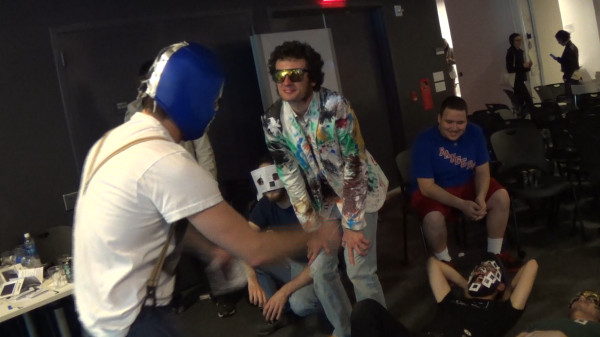 Manifestation at Different Games Conference 2014 in New York City, USA
Manifestation at Different Games Conference 2014 in New York City, USARituals: Small games designed by members of the organization. While these rituals are codified, they are also meant to be living things which are experienced differently each time - tweaked and changed indefinitely to suit the players and the environment.
 Workshop at UCLA in Los Angeles, USA
Workshop at UCLA in Los Angeles, USAManifestations: Rituals are shared through the CoP website and presented at light hearted public performances, called Manifestations.
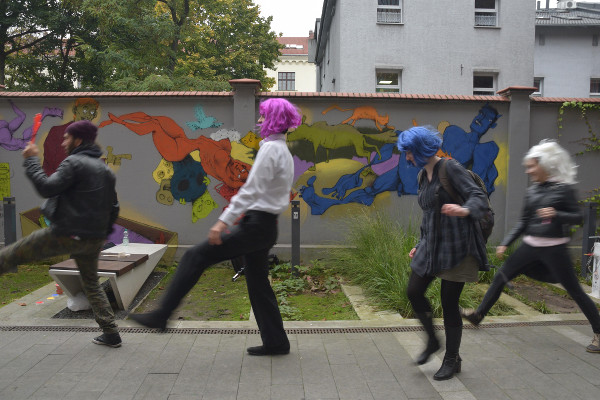 Manifestation at Playrepublik 2014 in Krakow, POLAND
Manifestation at Playrepublik 2014 in Krakow, POLANDWorkshops: Used to initiate members, and eventually set up different chapters of the organization. The CoP currently has active groups located in cities around the world including New York, Los Angeles, Atlanta, Boston, Athens (Georgia) and throughout Germany
All aspects of the games can be changed at any time except for the following two intractable principles:
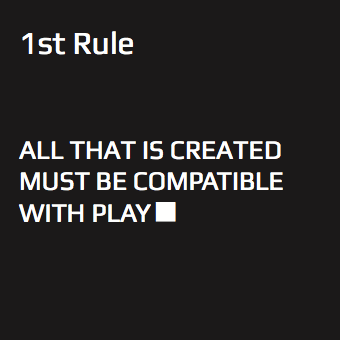
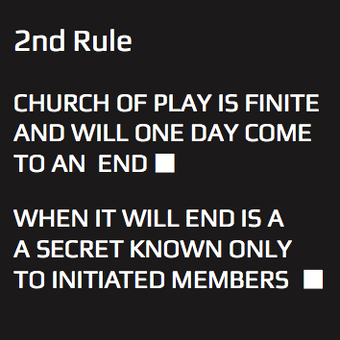
These are the principles of Play we have discovered so far:
 Two Blank Dice: The First Symbole of the Church of Play
Two Blank Dice: The First Symbole of the Church of Play"Play is Life" Play is not limited to certain people or certain situations. All living things play, whether animal or plant. Even Machines, created by humans, are full of Play.
 Manifestation at Georgia Institute of Technology in Atlanta, USA
Manifestation at Georgia Institute of Technology in Atlanta, USA"Play is Difference" Feelings of sameness with others is an illusion. Play acknowledges and embraces the gaps that exist between us, recognizing that confrontation and collaboration between different worldviews is the source of play.
 Workshop at USC in Los Angeles, USA
Workshop at USC in Los Angeles, USA"Play is Innocence" Play is always as if for the first time. Play is neither good nor bad, but it is full of potential for both.
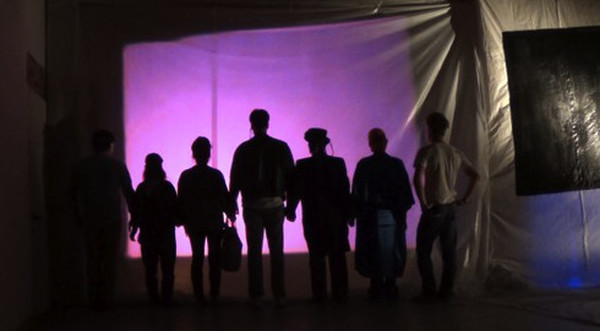 Manifestation at Concord Art Space in Los Angeles, USA
Manifestation at Concord Art Space in Los Angeles, USA"Play is Freedom" Through Play we experience the world as it is: constantly in flux, with the present being the only constant. Play demands that we also change constantly and fundamentally. Thus we learn to be free through play.
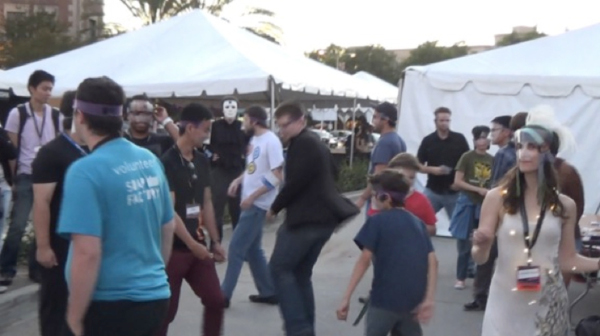 Manifestation at IndieCade 2013 in Los Angeles, USA
Manifestation at IndieCade 2013 in Los Angeles, USA"Play is Absurd" Play is defined by absurdity, liminality, and transgression. Yet in the midst of Play, nothing could feel more natural.
 Manifestation at Playrepublik 2014 in Krakow, POLAND
Manifestation at Playrepublik 2014 in Krakow, POLAND"Play is Beauty" A deep spiritual connection with Play enables us to experience joy, discover beauty, and feel refreshed.
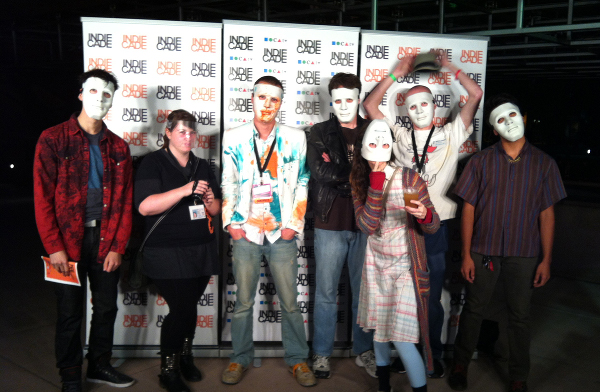 Activator Adam Rafinski and his Guardians of Play of the IndieCade 2013 Manifestation in Los Angeles, USA
Activator Adam Rafinski and his Guardians of Play of the IndieCade 2013 Manifestation in Los Angeles, USA"Playing well together is for the greater social good" We can not play alone- we play together. In order to play well we need to learn to identify Play as an object shared between us, which is terrifying and sensible at the same time. Exploring it together requires unlimited trust, respect, and compassion.